Associate Professor, Dr. Tran Khanh Thanh, Vice Chairman of the Central Council for Literature and Art Criticism; Associate Professor, Dr. Nguyen Dang Diep, former Director of the Institute of Literature, member of the Central Council for Literature and Art Criticism; Dr. Pham Duy Hung, Vice Principal in charge of Tan Trao University chaired the discussion.

Delegates attending the Scientific Seminar.
Attending the seminar were Associate Professor Dr. Nguyen The Ky, former member of the Party Central Committee, former General Director of the Voice of Vietnam , Chairman of the Central Council for Literature and Art Criticism; members of the Central Council for Literature and Art Criticism; leaders of a number of departments, branches, sectors and relevant agencies of Tuyen Quang province.
Many comments
In his opening remarks, Associate Professor, Dr. Nguyen Dang Diep, former Director of the Institute of Literature, Member of the Central Council for Literature and Art Criticism, focused on four major topics: The creative environment for writers, especially ethnic minority writers in the North; the supporting and encouraging role of the Literature and Arts Associations of provinces and cities; some universities in the region such as Ha Long, Thai Nguyen , Tay Bac, Hung Vuong, Tan Trao contributing to the combination of knowledge and creativity; openness for writers in the region to exchange internationally...

Associate professors and doctors chaired the discussion.
At the scientific seminar, delegates listened to and discussed the following topics: Literature of ethnic minorities in the mountainous region after half a century of continuity and development; Current status of literature of ethnic minorities in Tuyen Quang after 1975; Orientation for the development of literature and art of ethnic minorities in Tuyen Quang province after 1975; Some feelings about literature of ethnic minorities in Tuyen Quang after 1975; Formation and development of Tuyen Quang literature; Literature of ethnic minorities in the Northern mountainous region from after 1975 to present: Current status and reception; Current status of literary composition in ethnic minority languages in the Northern mountainous region today; Appearance of Northern minority literature from after 1975 to present; Y Phuong's works in the flow of literature of ethnic minorities in Vietnam after 1975; Poetry from the great forest of contemporary female ethnic minorities in the North; The role of education in preserving and developing ethnic minority literature in the present era, research at Tan Trao University; Expanding opportunities for developing ethnic minority literature in a multimedia context, viewed from the Northern mountainous region; Mong ethnic poetry in the modern period with current Mong language training and development.
Creating conditions for ethnic minority literature to flourish
Summing up and closing the discussion, Associate Professor, Dr. Tran Khanh Thanh, Vice Chairman of the Central Council for Theory and Criticism of Literature and Art, affirmed that on the topic of the discussion "Literature of ethnic minorities in Northern Vietnam since 1975", the majority of the papers said that ethnic minority literature is "a part of the flow of Vietnamese literature, including works by ethnic minority authors writing about their ethnic group and issues of social life".

Poet Duong Khau Luong, Chairman of the Literature and Arts Association of Bac Kan province, presented a speech.
Through the content of the presentations and opinions expressed at the Seminar, it can be seen that the issue of Vietnamese ethnic minority literature in general and the literature of ethnic minorities in Northern Vietnam since 1975 in particular has been concerned and approached from many directions, many angles, many different scopes in both literary practice and theory. The opinions expressed believe that the literature of ethnic minorities in Northern Vietnam from 1975 to present has achieved remarkable achievements in terms of staff and quality of ideological content and artistic value.
However, opinions say that the literature of ethnic minorities in the North still has some limitations such as: The number of authors writing in ethnic minority languages after 1975 is increasingly small. The team of writers is still sparse and unevenly distributed; some young writers do not live and work in the place where they were born, so their attachment to ethnic culture is lost, not deeply reflecting the cultural identity of ethnic minorities.
Currently, there are very few ethnic minority writers who have made artistic breakthroughs. Although the literature of ethnic minorities in the North since 1975 has developed in both quantity and quality, there are no works that crystallize the beauty of the ethnic language, creating the imprint of the ethnic literary language in a skillful way; the phenomenon of bilingual writing has recently appeared but not much; there are not many works and literary topics of ethnic minorities included in the general education and university education programs.
Ethnic minority literature is still confined within ethnic communities; promotion work is limited, ethnic minority literature has not been spread to increase acceptance; there is a lack of exchange between ethnic minority literature and Kinh literature and literature from other countries in the world.

Associate Professor, Dr. Nguyen The Ky, former member of the Party Central Committee, former General Director of Voice of Vietnam, Chairman of the Central Council for Literature and Arts Theory and Criticism, spoke at the seminar.
The opinions of the discussion group agreed that there should be orientation and necessary solutions such as: Raising awareness of the role and position of ethnic minority literature in Vietnamese literature, in preserving, promoting and developing national cultural values; having policies and strategies to develop, promote and preserve ethnic minority literature today; investing in developing and distributing ethnic minority writers reasonably; focusing on discovering, nurturing and training teams, encouraging talent, paying special attention to young writers; not allowing a situation where there are areas and ethnic minorities without literary writers.
Along with that, we should pay attention to promoting and supporting the activities of local literary and artistic associations both materially and spiritually so that the associations can regularly organize training courses and improve their professional skills to create an environment that is capable of stimulating passion and nurturing creative inspiration for writers of ethnic minorities; promoting the strong development of the team of literary theorists and critics of ethnic minorities.
Pay attention to the close connection between Literature and Arts Associations and universities in the Northern region; strengthen the role of sponsoring, managing and supporting literary activities of local literature and arts management agencies to create effective incentives and encouragement for creative activities and literary enjoyment of ethnic minorities in the area.
In addition, it is necessary to expand literary exchanges between provinces, localities and the Central Government, international literary exchanges, including exchanges with ethnic minority literature, Kinh literature, and literature of other countries; focus on bilingual works because they are an important bridge for works to reach the general public; increase the number of authors, works, and literary topics of ethnic minorities in general education and university education programs.
At the same time, expand opportunities to develop ethnic minority literature in a multimedia context, maximize advantages, prevent negative impacts of the technological age to preserve and promote traditional cultural capital of ethnic minorities, and arouse pride in national identity, especially for young writers.
Source: https://baotuyenquang.com.vn/toa-dam-khoa-hoc-van-hoc-cac-dan-toc-thieu-so-phia-bac-viet-nam-tu-sau-nam-1975!-194560.html




![[Photo] Students of Binh Minh Primary School enjoy the full moon festival, receiving the joys of childhood](https://vphoto.vietnam.vn/thumb/1200x675/vietnam/resource/IMAGE/2025/10/3/8cf8abef22fe4471be400a818912cb85)
![[Photo] Prime Minister Pham Minh Chinh chairs meeting to deploy overcoming consequences of storm No. 10](https://vphoto.vietnam.vn/thumb/1200x675/vietnam/resource/IMAGE/2025/10/3/544f420dcc844463898fcbef46247d16)


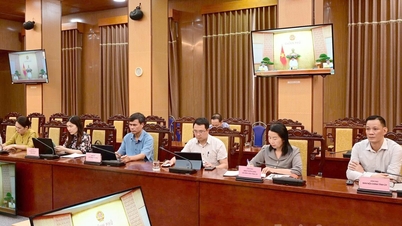



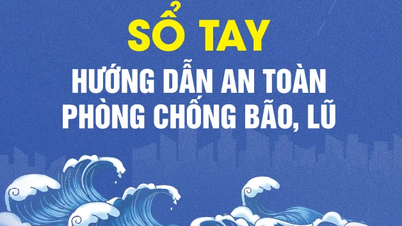
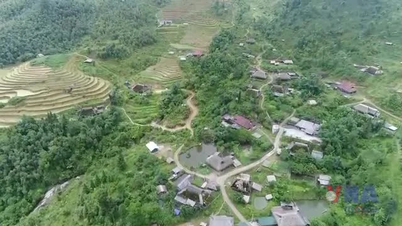

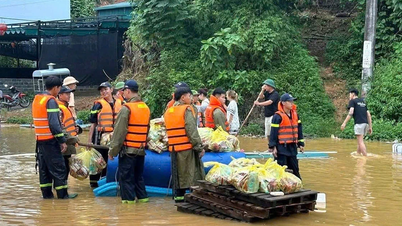
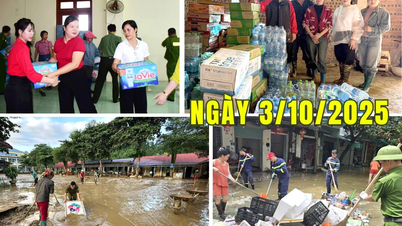
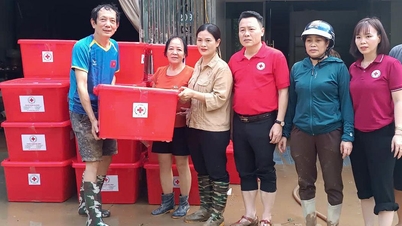
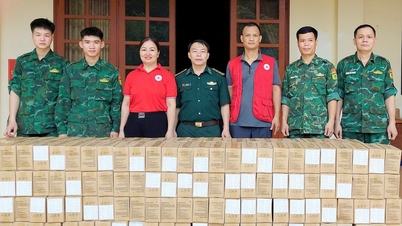
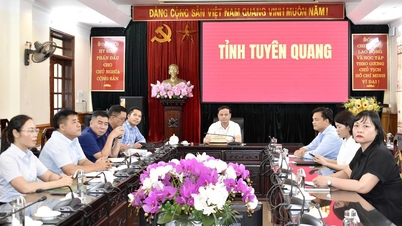

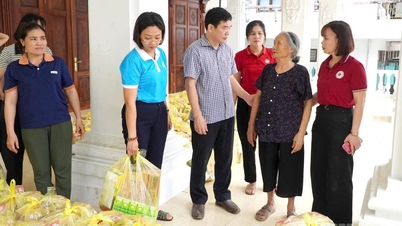
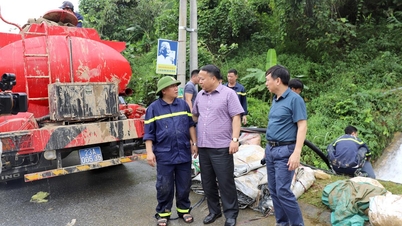




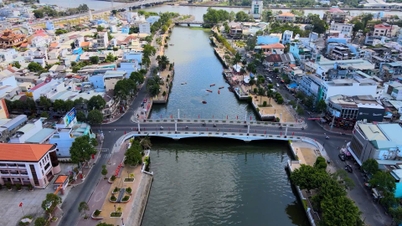
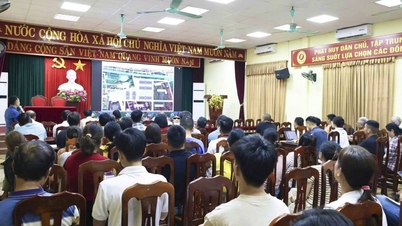
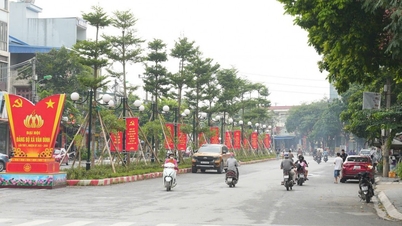
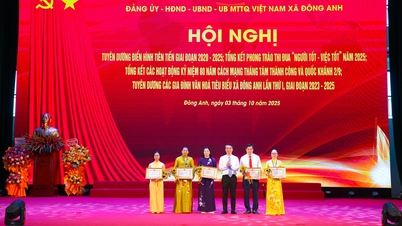

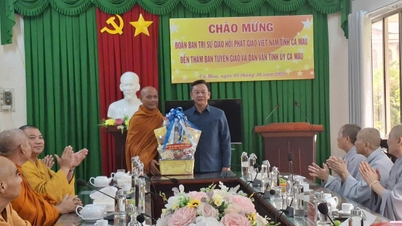



















































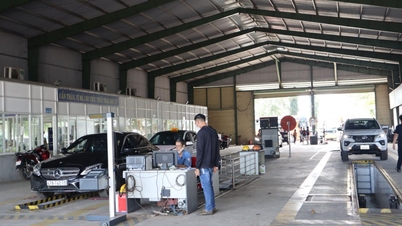

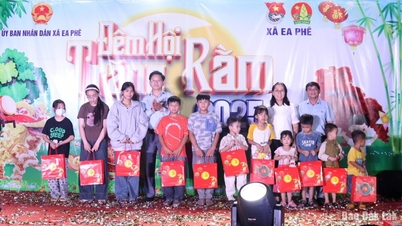
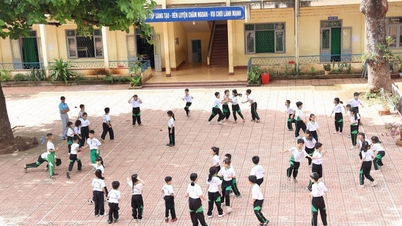
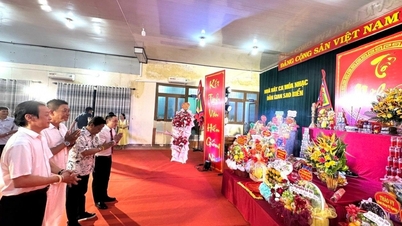

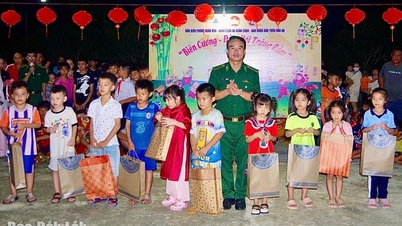











Comment (0)